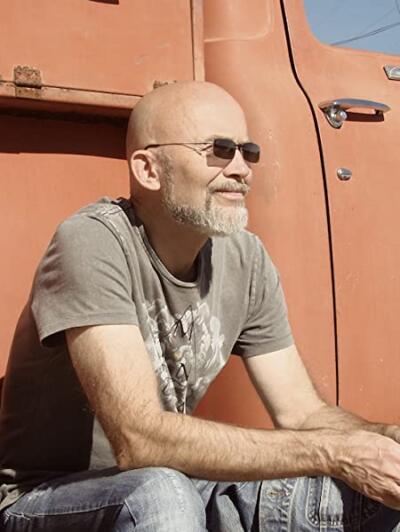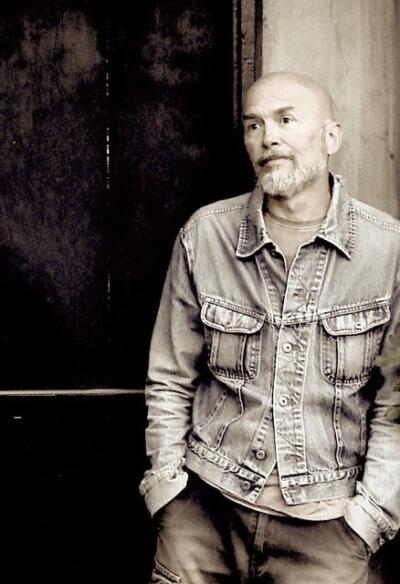1682 Show me the money
Nobody from Somewhere
by Dietrich Kalteis
Toronto: ECW Press, 2022
$24.95 / 9781770416116
Reviewed by Bill Paul
*
 The plot of this entertaining crime novel begins at a bar in a casino near the Vancouver airport. Park Won-Soon, a Korean businessman fluent in three languages and working out of Hong Kong, is having a drink with a woman named Nikki. Won-Soon belongs to the “nouveau rich Asians (who) were coming to play… getting on their flights and picking up bags of dirty money (triad money) as soon as their wheels set down.”
The plot of this entertaining crime novel begins at a bar in a casino near the Vancouver airport. Park Won-Soon, a Korean businessman fluent in three languages and working out of Hong Kong, is having a drink with a woman named Nikki. Won-Soon belongs to the “nouveau rich Asians (who) were coming to play… getting on their flights and picking up bags of dirty money (triad money) as soon as their wheels set down.”
Since his arrival, Won-Soo has been winning at blackjack and poker, carrying his bundles of cash in two leather bags that feature a Vancouver Canucks logo. What Won-Soon doesn’t know is that Nikki is a grifter, a crook, who’s set him up. Later in a hotel room above the bar, he’s beaten up and robbed by Nikki’s accomplices Angel and Cooder.
Of course there’s a catch, a snag. Zhang Lee, a member of the Bamboo Union triad (a transnational criminal organisation) based in Taiwan, is hired and sent to British Columbia. Zhang is a hard-nosed enforcer, a ruthless debt collector. He arrives in Vancouver armed and intent on retrieving the missing bags of money.
Nobody From Somewhere, written by Dietrich Kalteis, is tightly plotted, at times violent, international crime story. Kalteis builds the story slowly, introducing us to different characters and their motives. The story touches on the themes of betrayal, revenge and friendship. Yet the novel is also a sly critique of Vancouver as the land of opportunity.

Set in the lower mainland of British Columbia, the novel has an unlikely protagonist, a 73 year-old ex-military man and former RCMP officer named Fitch. Fitch is a widower diagnosed with terminal lung cancer. In his old age he’s adopted a boondocker lifestyle, living in his Winnebago and parking it overnight in North Vancouver (note to reader: boondockers are people who live in recreational vehicles without any hook ups to electricity, water or sewage).
Fitch is an honourable man who has a tendency to help others. Given his police and military background, he can spot mischief when he sees it. For emergencies he still owns a firearm. Lately he’s been thinking that he might want to settle down with his daughter who lives on five acres near Peachland in the British Columbia interior.
Enter the character of Wren Jones; 15 year-old, mature-beyond-her-years teenage runaway. Growing up in Hamilton, both her mother and father had been failures as parents (“she hated her dud dad for turning the world upside down”). Under the care of Child Services, she flees from a possibly abusive foster family and buys a train ticket from Toronto to Vancouver. A place where she knows no one.
Walking the streets of Vancouver and surviving on a box of Timbits, Wren falls asleep in a SUV parked next to a casino. Turns out that crashing in a parked SUV next to a casino is bad luck. Wren is in the wrong place at the wrong time and now she’s being pursued by Angel and Cooder who suspect she’s overheard some incriminating details about the recent robbery of Won-Soon.
No surprise then that at the Potlatch restaurant in North Vancouver, Wren crosses paths with Fitch who comes to her rescue. The friendship between the two characters anchors the book. It reminded this reader of the friendship forged between Mattie Ross and Rooster Cogburn in the novel “True Grit.”
Kalteis has a clipped writing style and a dry sense of humour. He invents roughneck characters who have a way with words. For example, Angel knows his partner Cooder is an ex-con who has a history of losing his temper. In this scene, Angel and Cooder are sitting at a casino bar, half-bored, passing time waiting for Nikki to arrive. Angel’s manner and tough language keeps Cooder in line.
Taking his arm off the red vinyl seat back, Angel said “What you make of this carpet?”Pointing to the swirling lines and muddy brown pile. “Thinking Stevie Wonder picked it out.”
“We talking about the color scheme now?”
“What I’m doing, I’m making conversation. Saying this place looks like shit.”
“If you say so.” Cooder looked back at the widescreens.
“By the way how’s the coffee?”
“Ought to try it.” Cooder slid the cup across. Angel grinned. “Sure you up for this, your mind on it?”
“Kind of thing you ask the weak link. I look like that to you.”
“Got no interest in your link, brother. Believe it. Just making sure you’re in the game.”
The novel features a crew of plausible characters: thugs, businessmen and boondockers. Kalteis likes to switch back and forth between the character’s stories. Angel and Cooder scamming unsuspecting drivers of their expensive cars. Zhang interrogating Won-Soon. Some friendly banter between Fitch and Wren.
Here’s the author’s description of Fitch getting ready for bed in his Winnebago (known by its nickname “Happy Camper’’):
It had been one hell of a day, going to the oncologist, missing out on meatloaf, and taking care of the assholes -getting into his pyjamas when he heard the scrape of shoes on the pavement outside. First thought, they found him. Slipping on his housecoat he dropped the pistol in the pocket, went and put a finger to the side curtain and checked outside, tiptoeing to the front, tying the sash over the colostomy bag, saying through the busted window, now taped over in cardboard, “Better not be the Jehovahs.”

Locations like vacant lots, mini-malls and industrial parks form the backdrop to the story. The author is good at establishing a frame for the action to unfold, noticing overlooked details such as the “the eagle’s nest empty in the top of the tallest trees across the field, more of it showing as the autumn leaves fell.”
Or this observation: “homeless guys sitting outside the exit counting a cart of empties, one of them bitching about the restrictions on returns.” It’s a city where the less fortunate are eking out a living. But also an area where suburban neighbourhoods sit next to mountains and forest.
Part of what drives the novel is the story of how dirty money is imported into British Columbia. Kalteis has different characters comment on the Vancouver model of money laundering. How wealthy Chinese citizens (“the tu hao”) transfer money to bank accounts in China that are controlled by criminal gangs.
In Vancouver the money is returned to them in Canadian cash by gang members (“picking up playing money once they land at YVR”). At the casino, the tu hao trades the cash for chips and starts making low-value bets. Before leaving, they exchange the chips for a cheque (“the triad getting their money cleaned”).
The story moves at a leisurely pace and then turns the corner. Characters make decisions and need to act on them. Zhang’s interest is to reclaim the stolen money for the triad family. Angel and Cooder are trying to scratch out a living. It’s understandable that Cooder would think that “Robbing this casino meant he could afford Vancouver rents.”
As for Fitch and Wren, the two of them hope to slip away unnoticed. What’s up their sleeve? Maybe leave the area where the smoke from the fires in the Fraser Valley hangs over the lower mainland and say goodbye forever to the “concrete and beams … (and) multimillion dollar views to downtown.”
Editors note: Deitrich Kalteis’s Under an Outlaw Moon (ECW Press, 2021), reviewed here by Alma Lee, recently won the 2022 Crime Writers of Canada Award of Excellence for Best Crime Novel.
*
East Vancouverite Bill Paul enjoys photography and reading fiction and non-fiction. Editor’s note: Bill Paul has also reviewed books by Stan Rogal, Keath Fraser, and John Farrow, and contributed a photo-essay, Trevor Martin’s Vancouver, to The British Columbia Review.
*
The British Columbia Review
Publisher and Editor: Richard Mackie
Formerly The Ormsby Review, The British Columbia Review is an on-line book review and journal service for BC writers and readers. The Advisory Board consists of Jean Barman, Wade Davis, Robin Fisher, Barry Gough, Hugh Johnston, Kathy Mezei, Patricia Roy, Maria Tippett, and Graeme Wynn. Provincial Government Patron (since September 2018): Creative BC. Honorary Patron: Yosef Wosk. Scholarly Patron: SFU Graduate Liberal Studies.
“Only connect.” – E.M. Forster
6 comments on “1682 Show me the money”